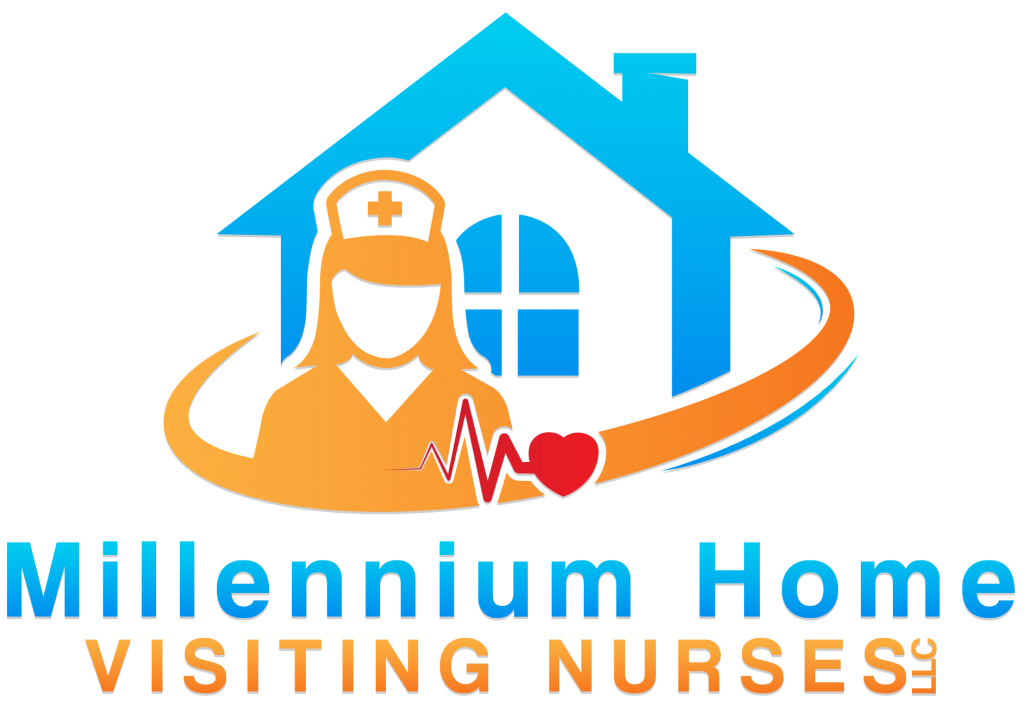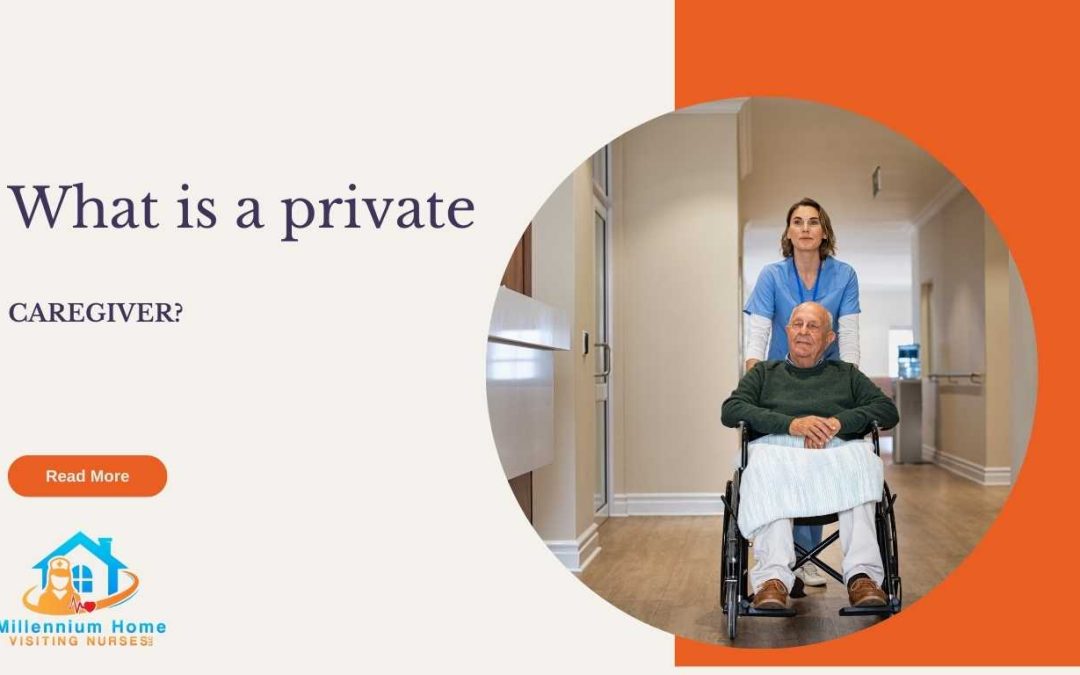As more seniors express the desire to age comfortably in their own homes, the role of a private caregiver has become increasingly important. Many families in Rockville and throughout Maryland are exploring in-home care options for aging parents or relatives who need daily support but prefer to stay out of institutional settings.
What Is a Private Caregiver? Duties & Benefits Explained
A private caregiver can provide the personal, compassionate assistance that makes this possible.In this article, we’ll take a closer look at what a private caregiver does, who they help, how they differ from home health nurses, and why families choose private care to support their loved ones.
The Role of a Private Caregiver
A private caregiver is a trained individual who provides non-medical assistance to someone in need typically a senior, someone recovering from surgery, or a person with a disability. Their goal is to support daily living in a safe, respectful, and consistent way.
Unlike medical professionals, private caregivers do not perform clinical procedures. Instead, they help with everyday tasks that become difficult due to age or health conditions.
Common duties include:
- Assisting with bathing, dressing, and grooming
- Meal preparation and light housekeeping
- Providing companionship and conversation
- Running errands and offering transportation to appointments
- Supporting mobility around the home
Some caregivers may have additional training in dementia care or chronic illness management, but their focus remains on improving comfort and daily function rather than administering medical care.
Who Can Benefit from Hiring a Private Caregiver?
Private caregiving is not just for those with serious health issues. It’s also a proactive step for individuals and families who want help managing day-to-day tasks or preventing accidents in the home.
People who often benefit include:
- Seniors living alone: A caregiver can reduce isolation and provide peace of mind for family members who live far away.
- People recovering from surgery or hospitalization: Temporary help with mobility, hygiene, and household tasks can aid recovery.
- Individuals with disabilities or cognitive challenges: Caregivers can ensure routines are followed, meals are prepared safely, and medications are taken on time.
- Family caregivers in need of a break: A private caregiver can provide respite for family members, allowing them time to rest and attend to their own needs.

Core Services Provided by Private Caregivers
While every caregiving arrangement is different, there are several services that most private caregivers offer as part of a care plan.
Personal Care Support
This includes hands-on help with hygiene, grooming, dressing, toileting, and mobility. The caregiver ensures the person feels safe and maintains dignity.
Meal Assistance and Nutrition
Caregivers help plan and prepare meals according to the client’s dietary needs. This is particularly valuable for seniors who may forget to eat or require help due to limited dexterity.
Light Housekeeping
From tidying up the kitchen to making the bed, caregivers help maintain a clean and comfortable living space. Tasks may include laundry, dishes, and organizing medications.
Medication Reminders
While not licensed to administer medicine, caregivers remind clients when it’s time to take prescriptions and ensure medications are taken as scheduled.
Companionship and Emotional Support
For many seniors, the social aspect of caregiving is just as important as the physical help. Regular conversation and engagement help reduce feelings of loneliness or depression.

Private Caregiver vs. Home Health Nurse: Key Differences
Although they may seem similar, private caregivers and home health nurses have different qualifications and responsibilities. Understanding the distinction can help families choose the right level of care.
| Feature | Private Caregiver | Home Health Nurse |
| Primary Role | Non-medical daily assistance | Medical care and skilled nursing |
| Training | Often certified as personal care aides | Registered Nurse (RN) or Licensed Practical Nurse (LPN) |
| Insurance Coverage | Usually private pay or long-term care insurance | May be covered by Medicare or insurance |
| Tasks | Companionship, ADLs, light cleaning | Wound care, injections, vital monitoring |
When to choose a caregiver: For long-term, daily assistance with non-medical tasks.
When to choose a nurse: For medical recovery, post-surgical care, or serious health monitoring.
How to Hire a Trusted Private Caregiver in Maryland
Choosing the right caregiver requires more than just checking references. Families should consider both the logistics and emotional fit of a caregiver-client match.
Key tips for hiring:
- Work with a licensed agency to avoid legal or tax complications.
- Interview multiple candidates to evaluate personality, communication, and compatibility.
- Check certifications, training, and background to ensure safety.
- Ask about past experience with specific conditions such as dementia, diabetes, or limited mobility.
- Understand the cost structure, including hourly rates, live-in care options, and weekend or overnight fees.
When working through an agency like Millennium Home Visiting Nurses, families gain added confidence knowing the caregiver is trained, insured, and part of a larger support network.

The Value of Personalized In-Home Senior Care in Rockville
In-home care allows seniors to maintain a sense of independence and stay connected to familiar surroundings. Private caregiving makes this possible without the stress or disruption of relocating to a facility.
Benefits of in-home care include:
- Personalized, one-on-one attention
- Reduced risk of infections compared to nursing homes
- Better mental well-being through consistent routines
- Family involvement in creating and adjusting the care plan
In Rockville and across Maryland, families are finding that private caregivers offer a level of flexibility and attentiveness that makes home life easier and more fulfilling for aging loved ones.
Why Families Choose Millennium Home Visiting Nurses
At Millennium Home Visiting Nurses, we understand that choosing care is a deeply personal decision. Our private caregivers are carefully selected for their professionalism, compassion, and experience. Every care plan is tailored to the unique needs of each client.
We provide:
- 24/7 caregiver availability
- Fully vetted and licensed staff
- In-home assessments and personalized care plans
- Ongoing communication and updates for family members
- Service areas across Rockville and the surrounding Maryland communities
Whether you need a few hours a day or round-the-clock care, we are committed to supporting seniors and their families with dependable, respectful service.

Frequently Asked Questions About Private Caregivers
Are private caregivers covered by insurance?
Most private caregiving services are paid out-of-pocket or through long-term care insurance. Traditional health insurance usually does not cover non-medical support.
How much does it cost to hire a private caregiver in Maryland?
Costs vary depending on location, service hours, and level of care. On average, families can expect rates between $25 to $35 per hour for experienced caregivers.
Can we request a different caregiver if needed?
Absolutely. At Millennium Home Visiting Nurses, your satisfaction and comfort are our priority. If a caregiver isn’t the right fit, we’ll help you find one who is.
What’s the difference between hourly and live-in caregivers?
Hourly caregivers visit for specific hours each day, while live-in caregivers reside in the home and provide support throughout the day and night with scheduled breaks.
Quick Checklist: Is It Time to Hire a Private Caregiver?
- A loved one struggles with basic hygiene or mobility
- Missed medications are becoming a pattern
- Loneliness and depression are becoming noticeable
- Family members feel overwhelmed or burnt out
- Household chores are left undone or causing safety risks


Recent Comments